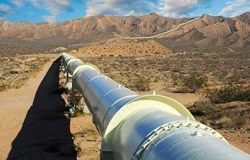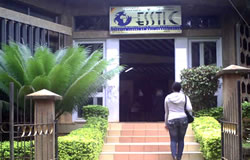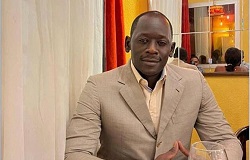Cameroun - Energie. Energy, Indispensable For Genuine Industrialisation

While government pursues giant projects, there is need to develop transmission lines for the produced energy to get to industries and households.
ADS
Cameroon has negotiated an irreversible bend towards industrialization. But for the dream to be realized, there is need for sufficient energy which the country doesn’t have at moment. Statistics show that installed electricity capacity in Cameroon is in the neighbourhood of 1,299 megawatts and demand is almost double the production. Target is to produce about 3,000 MW by 2020.
The Head of State, Paul Biya, in his New Year address on December 31, 2015 stated that; “The major challenge for the country in 2016 will be to create conditions conducive to real industrialisation. Emergence is inconceivable without a viable industrial sector,” he said. But for real industrialisation to be reality, the Head State said favourable conditions must be put in place. One of such conditions; in fact, an indispensable one, is energy that must be produced in quantity and quality. What exists in the country now is everything but this. Intermittent energy cuts, most often unannounced, are causing untold damages to households. The situation is worse for the few industries in the country.
Most, if not all industries need huge and constant energy supply to function at optimum. Anything short of it will be synonymous with bad business which very few industrialists would want to venture into. If efforts are not redoubled to supply the indispensable ingredient to all, it would delay the genuine industrialisation that the Head of State wishes for the country in its drive to attain a middle-income economy by 2035. Should energy not be enough and some industrialists even venture into business, maybe with their own means to produce energy that would have been produced by government, this would entail increase in the production cost of whatever they would be producing. Given that no business man is out for philanthropy, they would certainly factor the energy cost into their final produce and the final consumer would be the one to suffer. A people-oriented government, like that of Cameroon, would not want such a scenario to prevail.
As already engaged giant projects continue in the different sites across the country and funding sourced for others, there will equally be need to device transmission mechanisms so that when the projects are complete, the energy will be effectively moved from the plants to industries and households where it is hugely needed. Thank God, the Head of State last year created a State corporation, SONATREL, bestowed with the powers to ensure an efficient transmission of electricity in the country!
That government has also embraced renewable energy is a good step in the right direction. As a matter of fact, government in December 2014 went into partnership with Signature Africa Venture Limited, part of a Dubai-based investment holding company, Signature Group Capital Partners, for the outfit to carryout feasibility studies across the country in view of developing diverse renewable energy sources. These include studies for developing a rural electrification project, construction of a biomass electricity development pool and a solar energy pool as well as mini hydroelectricity plants in some regions of the country on the Build, Operate and Transfer (BOT) mode. The country has huge energy potentials which should be fully maximized because light brings life and there is no genuine life without sustainable socio-economic development.
ADS
ADS
ADS
ADS










